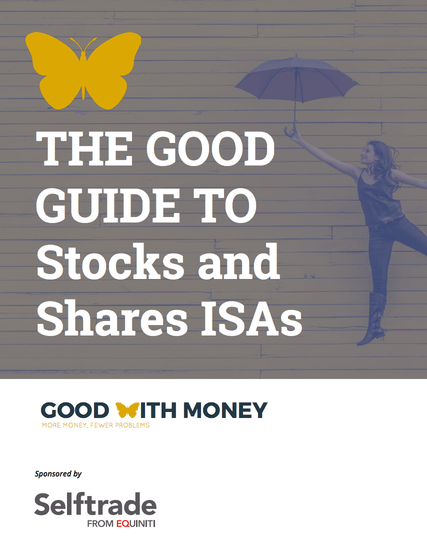What’s riskier? Bungee jumping off a bridge? Or using your phone in the street? What’s the riskiest thing you’ve ever done? And how would you describe your background?
How you answer these questions could reveal a lot about what type of investor you are.
I found out the other night that I am “measured” – a medium risk taker, when it comes to money (and indeed most things in life, for how you are with money usually reflects your general attitude and past experiences, according to Corinne Sweet, psychologist).
It’s worth knowing what your attitude to risk is and why if you are embarking on investing. That’s because as soon as you take that first step of setting up an account on an investment platform – particularly the new breed of robo platforms – you will be asked to choose from a range of options that are based upon your risk appetite – often as simple as “low”, “medium” or “high”.
Naturally, this can be a sticking point if you really aren’t sure what your risk appetite is.
And as I learned, alongside others invited by Click & Invest, Investec’s investment platform, to participate in a behavioural analysis by Corinne, none of us are quite so black and white. In our lives, there will be some instances where we take more risk and others, less. The context of those decisions is what counts. We are rarely as straightforward as “low”, “medium” and “high”.
So in my case, according to Corinne, I am “cautious, due to personal experience, but aware of the good aspects of risk taking”. Her analysis of me pointed to personal bereavement as one reason for caution, but a strong financial education as another reason for taking calculated risks. So I pay for income protection insurance every month, for example, but also invest up to £300 a month is some relatively high risk funds.
The latter decision is calculated, because, although in many parts of life, I like to play safe, I can also intellectually grasp that higher risks are good to take if you are investing for the long term, over many years. In this way then, my head is just about ruling my heart when it comes to taking financial risks.
The influence of your background is an interesting one. If you grew up working class, there’s a chance you might be more risk averse, because a) you possibly didn’t grow up listening to dinner time chats about where Dad is investing your wedding fund and b) you really, really, really know the value of money and all the hard work that goes into it. Whereas those from wealthier backgrounds could (not necessarily, but could) be more cavalier about cash, understanding, through experience, the long-term benefits of putting some of it at risk.
Another thing the analysis really showed up is that our perception of risk is often wrong. The probability of having an accident while using your phone in the street is greater than the chance of coming to harm on a bungee jump.
This gap between perceived risk and actual risk is significant in financial planning because like bungee jumping, we often consider investing to be dangerous, when in fact, the probability of loss may not be as high as we think.
My own perception of risk is often inflated – I see risk where there isn’t much, but that is only when the risk is physical. That could be because I am a mother, and I am particularly sensitive to certain kinds of dangers – roads, cliff edges, etc. But while physical risks are a biggie for me, financial risks are not. My Dad was a “can’t take it with you” type. Maybe that’s why. I am also self-employed and run two businesses. To do that, you have to have a certain propensity for financial risk – and an understanding that it will all be alright in the end.
So it’s also important to understand that while different experiences and perspectives from other areas of your life can affect your financial risk profile, you may also have a different risk profile in different parts of your life. So it’s entirely consistent to be a bungee-jumper who keeps all their cash in ultra safe deposit accounts, or an agoraphobic who invests in high risk equity funds.
You don’t have to undergo a personality analysis before you invest. But taking some time to raise your self-awareness before choosing the risk profile that could have a big influence on your future profits is definitely worth doing.
Want to try a Stocks and Shares ISA for the first time? Read this guide first




